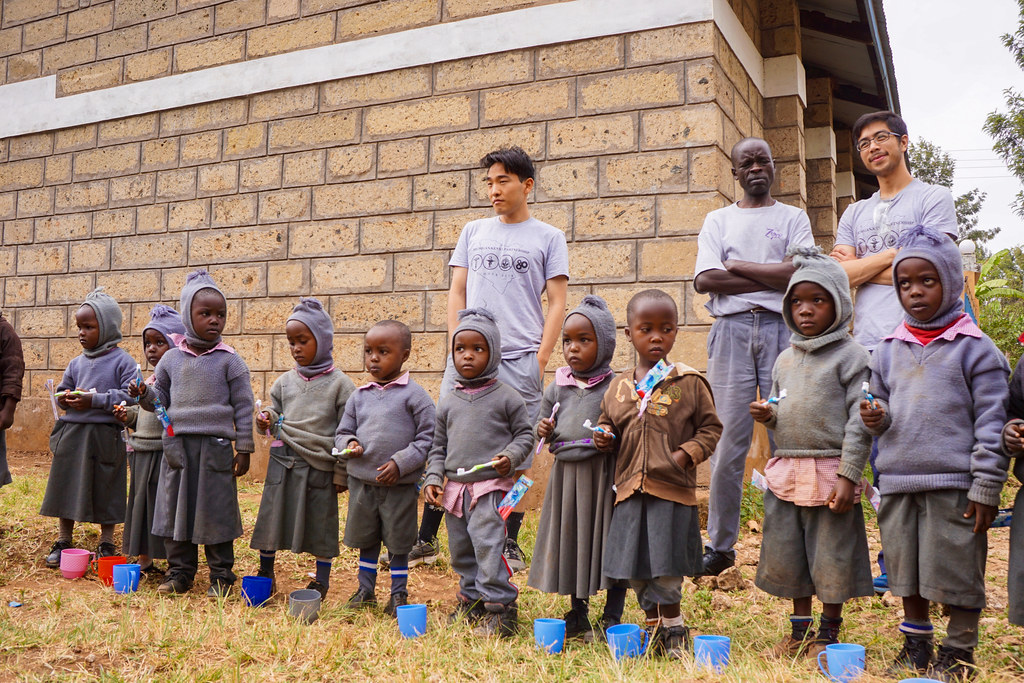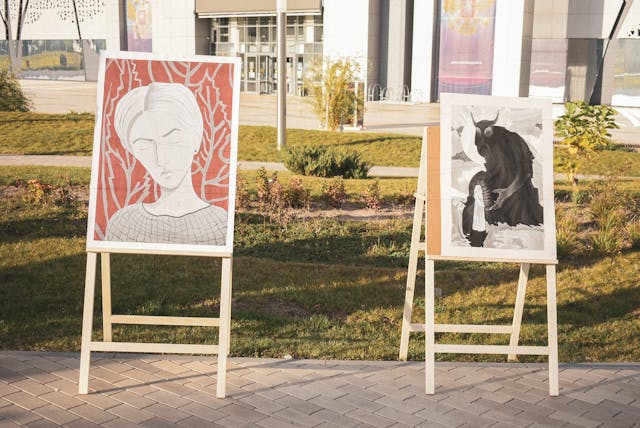Access to Quality Education in Developing Countries
Education is an essential component of human development, yet many individuals worldwide struggle to access it. In developing countries, the lack of resources and infrastructure often makes it challenging to provide quality education to children, especially those living in informal settlements.
Kenya is no exception to this challenge. Students living in informal settlements often face significant obstacles when trying to access basic education.
CFK Africa’s Mission in Kibera, Nairobi
CFK Africa is a non-profit organization that works to improve the lives of people living in the Kibera slum in Nairobi. The organization focuses on education, health, and economic development as key areas to achieve its mission.
Education is a critical component of CFK Africa’s work, and the organization has been working to improve educational outcomes for students in Kibera. Their program includes early childhood education, primary school, and secondary school support.
They also provide scholarships and mentorship programs to students from disadvantaged backgrounds.
The Challenges of Access to Education in Informal Settlements
While CFK Africa’s education program has been successful in improving educational outcomes for students in Kibera, the organization recognized that significant challenges remained to be addressed in informal settlements across Kenya.
Students living in these settlements face numerous challenges, including a lack of resources, infrastructure, and access to educational materials.
CFK Africa and MIT Partnership to Improve Educational Outcomes in Kenya
CFK Africa recognized the need for evidence-based solutions to improve educational outcomes in informal settlements in Kenya. To achieve this, the organization partnered with the Massachusetts Institute of Technology (MIT), a world-renowned research university.
Together, they aimed to develop innovative interventions that would be tailored to meet the unique needs of the communities they serve.

Innovative Solutions to Improve Educational Outcomes
Digital Technologies to Support Learning
CFK Africa and MIT identified that access to educational resources was a significant challenge for students in informal settlements. To address this challenge, they introduced a digital platform accessible on mobile phones.
This platform provides access to educational resources such as textbooks, videos, and interactive learning materials. This is a cost-effective and accessible way to provide educational resources, as mobile phones are widely used in Kenya.
Community-led Interventions
CFK Africa and MIT recognized that community participation was critical to the success of any intervention. To achieve this, they developed community-led interventions that were tailored to meet the unique needs of the communities they serve.
By working with community members, they could create sustainable solutions that had a lasting impact.
Improving the Quality of Teaching in Informal Settlements
The partnership recognized that the quality of teaching was critical to improving educational outcomes for students. Therefore, they worked with teachers to help them improve their skills and knowledge.
Through training and mentorship programs, teachers could enhance their understanding of the subjects they taught and their teaching techniques. This led to better quality teaching and positive outcomes for students.
Improving Access to Education for Girls
Girls often face significant obstacles when trying to access education, particularly in informal settlements where cultural beliefs and practices can limit their access to education.
To address this challenge, CFK Africa and MIT worked with community leaders and parents to promote the importance of educating girls. By raising awareness, they were able to increase the number of girls who were enrolled in school.
The Role of Evidence-Based Solutions
One of the most significant benefits of the CFK Africa and MIT partnership is the use of evidence-based solutions. By leveraging the research and expertise of MIT, CFK Africa has been able to develop interventions that are based on sound evidence.
This approach has enabled the two organizations to identify the root causes of the challenges faced by students in informal settlements in Kenya and to develop interventions that are tailored to meet their unique needs.
The Importance of Community-Led Interventions
Another critical element of the partnership between CFK Africa and MIT is the use of community-led interventions. By involving community members in the design and implementation of the interventions, the two organizations have been able to develop solutions that are sustainable and that have a long-term impact.
Community members are best placed to understand the unique challenges faced by their communities, and involving them in the development and implementation of interventions ensures that the solutions are tailored to meet their specific needs.
The Power of Innovation
The CFK Africa and MIT partnership also highlights the power of innovation in addressing complex challenges. The partnership has led to the development of several innovative solutions that have had a positive impact on the lives of people living in informal settlements in Kenya.
These solutions have been designed to address the root causes of the challenges faced by students in these communities, and they are evidence-based and community-led, which ensures their sustainability and long-term impact.
Conclusion
Access to quality education is critical to improving the lives of people in developing countries. CFK Africa and MIT have been working together to improve educational outcomes for students in informal settlements in Kenya by developing innovative interventions that are tailored to meet the unique needs of the communities they serve.
These interventions are sustainable and have a long-term impact on the lives of the people in these communities.
The partnership between CFK Africa and MIT is a powerful example of how collaboration, evidence-based solutions, and community-led interventions can lead to significant progress in addressing complex challenges.
With continued collaboration and innovation, we can make significant progress in improving access to quality education for all, regardless of their background or where they live.


